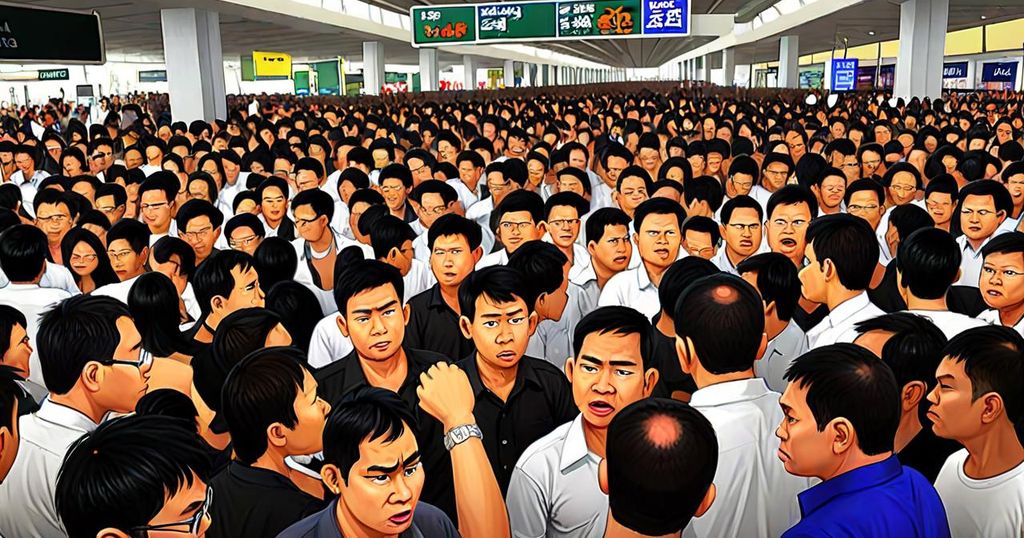In a recent legal ruling, a court in Thailand has dismissed terrorism charges against 67 individuals implicated in antigovernment protests that took place in 2008. This decision has elicited a range of emotions among the defendants. The protests, commonly referred to as the “Yellow Shirt” demonstrations, resulted in the closure of operations at Bangkok’s two airports for over a week.
The Bangkok Criminal Court indicated that the protests were deemed as peaceful and protected under the constitution, as the protesters were unarmed and did not pose a threat. Consequently, the charges of rebellion and terrorism were dropped, bringing a sense of relief to the defendants and their supporters.
One of the former spokespersons for the People’s Alliance for Democracy (PAD) group, Panthep Puapongpan, conveyed gratitude for the court’s decision, emphasizing its role in assuaging the emotions of those involved. Upon hearing the ruling, many defendants were moved to tears, having endured a prolonged legal battle.
The antigovernment protests, aimed at ousting then-Prime Minister Somchai Wongsawat, caused significant disruption as the “Yellow Shirts” took control of the airports, leaving hundreds of thousands of tourists stranded. The protests were part of a broader movement to challenge the government and its links to deposed Prime Minister Thaksin Shinawatra, a polarizing figure in Thai politics.
Backed by Bangkok’s elites, PAD also seized a state television station and occupied Government House for an extended period, leading to a protracted standoff with the administration. The court’s decision to dismiss the charges represents a pivotal moment for the defendants, who have faced legal repercussions for their actions over the years.
This exoneration comes on the heels of a previous ruling in January, which saw charges dropped against 31 other PAD protest leaders, albeit with a fine for violating an emergency decree. Moreover, the leaders of PAD were directed to pay a substantial amount in damages to the state airport authority, resulting in financial hardships and asset seizures.
The legal journey for the defendants has been protracted and challenging, and the recent ruling provides a sense of closure for them. While the acquittal signifies a significant milestone, it also raises questions about the broader political landscape in Thailand and its potential implications for the future.
As the nation contemplates these developments, the aftermath of the antigovernment protests continues to influence discussions on governance, accountability, and the rights of citizens to express dissent. The court’s decision carries substantial weight and sheds light on the intricacies of Thailand’s political history.
In conclusion, the acquittal of the individuals involved in the 2008 Bangkok airport shutdown serves as a testament to the evolving narrative of democracy and civil liberties in Thailand. It underscores the intersection of law, governance, and public participation, offering valuable insights into the dynamics of political activism and legal justice in the country.

Leave a Reply